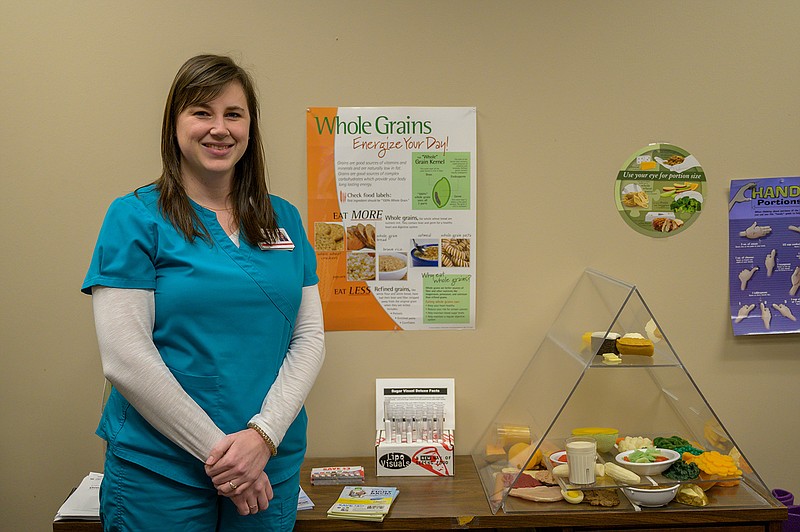With the start of a new year, adopting a healthier lifestyle will be the goal of many, and practicing good nutrition is a key component to achieving that.
But to be successful, local dietitians say it's a change that should be viewed as a lifestyle overhaul instead of a short-term solution.
"This is something that is a lifestyle change. You don't need to look at it as something you're going to work on for three months. It needs to be something you work at forever," said Britney Speer, clinical nutrition manager for CHRISTUS St. Michael Health System. "A healthy diet plan is going to set you up for success. It is going to set the stage for a healthy lifestyle."
Matt Quinn, chief clinical dietitian at Wadley Regional Medical Center, said it's a goal that people have to invest time in to accomplish.
"It's about how much time they give toward figuring out what they're going to eat and actually focusing on that, and thinking ahead at the meals they'll have that day or that week," he said. "Putting thought into it gives you choices. We need to focus more on ourselves and what we're putting in our bodies, and sometimes that's difficult. One thing they attribute that to is that people eat unhealthy because of time constraints.
"A lot of convenient foods are chock-full of calories, sugar and preservatives. Our body is essentially storing those foods because it doesn't process them well."
Fad diets are numerous, but because they often eliminate certain food groups, they tend to be hard to maintain for most people.
"What I always tell my patients when it comes to weight loss is, if it sounds too good to be true, it probably is," Britney said. "There are diets that promise you'll lose weight quickly and you may initially have some success, but they typically aren't sustainable. They're restricting something so you aren't going to be able to stay on it long-term. You'll eventually fall off and gain your weight back and maybe even gain some more."
Carbohydrates have fallen out of favor in recent years, but they remain an essential part of a healthy diet.
"There is a lot of concern around carbs, but I want people to know that carbs aren't the enemy. Your body wants and needs carbohydrates to function correctly," Britney said. "We want people to eat healthy carbs sources instead of bad carbs like cake, cookies and candies. Fruits, vegetables and whole grains are the good sources you want."
A healthy diet should be diverse and full of colorful fruits and vegetables.
"We have gotten so far away from what was originally considered a balanced diet," Matt said. "We've really gotten away from variety and balance. Focus on eating those five fruits and vegetables a day, eating more whole grains and looking for lower fat option and leaner cuts of meat. One little tip I tell people is to make half your plate nonstarchy vegetables, and they don't all have to be green. Add some color to your plate. The more color you add in fruits and vegetables means there are more vitamins in your food, and by doing half your plate in vegetables, you're taking away the space and opportunity to eat unhealthy things."
The idea of portion control has almost become obsolete in society today. Restaurants serve huge portions, and growing up with the "clean your plate" mentality is working against the country's waistline.
"Portion control is one of the biggest things we've gotten away from in society," Britney said. "Of course we want people to make healthy choices most of the time, but we also need to figure out those healthy serving sizes. For instance, when you order an entrée in a restaurant, split it with someone or take half of it home. That can really cut down on calorie intake."
Something as simple and drinking a glass of water before a meal can also help cut back on overeating.
"Our stomach has about a 15-minute delay, so someone will be eating and may not feel how full they already are because it takes a little bit for their brain to receive that signal. I tell people to have a big glass of water, about 20 ounces, before they eat a meal. It will fill you up so you don't overindulge, and it will help make sure you stay hydrated because we don't drink enough water anyway," Matt said.
Eating a well-balanced diet isn't only about looking and feeling good - the health consequences of eating badly are evident in the rise of diabetes and cardiovascular disease.
"What we're seeing here recently is a large uptick in diabetes. It's becoming more and more prevalent and hitting people earlier in life. Type 2 diabetes would usually hit at age 50 or later, but it's becoming more common in people in their late 30s and early 40s," Matt said.
(For more healthy eating tips, visit Choosemyplate.gov.)


